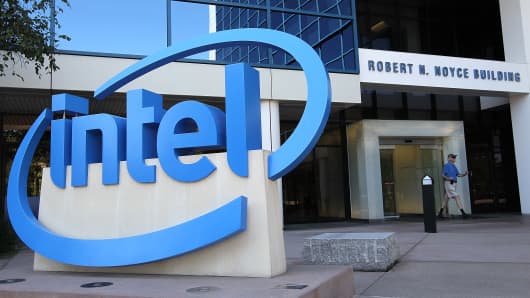The vast majority of the apps and software that run on iPhones, iPads, Galaxy phones and other devices all are built off ARM-based intellectual property, so to change from that technology to Silvermont is an enormous task.
It will take years before Silvermont is firmly entrenched in mobile devices, and by then ARM-based chips from Apple, Samsung, Qualcomm and others will have next-gen chips, so Intel will continue to be stuck in the mud.
RBC Capital Markets Doug Freedman noted that Intel is fighting a perception problem in the marketplace, especially as it pertains to power consumption.
More From TheStreet.com:
Buffett's Optimism Is Fool's Gold
Google Glass Success Will Rely on Business Users
Home Prices Surge in Cities With Strong Job Growth: Trulia
"We are encouraged by new instructions and technology which enable improved efficiencies, however, we acknowledge that Intel is battling market skepticism in low-power vs. ARM," Freedman penned in a note. He rates Intel "buy" with a $29 price target.
The new Silvermont chipsets offer some exciting new things as it pertains to Intel, including lower power consumption and where Atom chips can be used, across a wide variety of devices from servers to data centers to mobile devices.
The Silvermont family of chips (Bay Trail (mobile), Merrifield (context aware and personal services), Avoton (data center) and Rangeley (networking)) also offer a higher performance than current Atom chips, so that's certainly a step in the right direction.
(Read More: Foxconn Tries to Move Past the iPhone)
Intel has had its missteps when it comes to mobile, first brushing the segment off, then spending years and billions in research and development trying to play catch up to ARM designs.
With Brian Krzanich as its new CEO, that mindset has to change, and products need to come to market much quicker than they have.
Intel's bread and butter, PCs, has even come under attack with the launch of Windows RT, and ARM-based server chips, though Intel still holds a dominant position in PCs and servers.
Mobile devices are increasingly becoming more powerful, especially as companies like Apple and Samsung make their own chips.
These companies aren't going to move to Intel designs unless there's a drastic difference in power performance, Freedman noted. "While we are encouraged by the Atom road map, we believe the market will take a 'wait and see' approach as Intel attempts to establish more serious inroads in ARM-dominated markets."
Intel is increasingly focusing its efforts on mobile devices, as the PC market continues to contract at a faster pace than anyone thought. Silvermont is Intel's best weapon yet, but it's not something that's going to radically change the company's fortunes in the next year or two.


